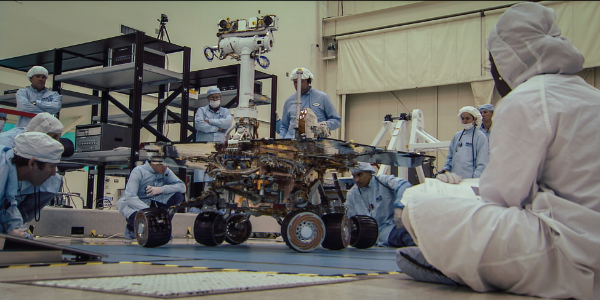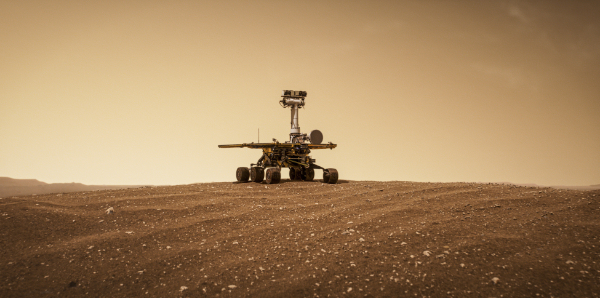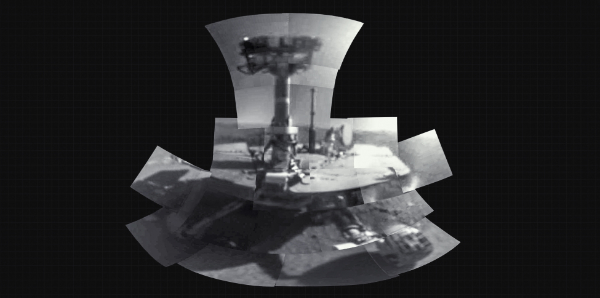Think for a moment, if you will, of the many inventions or discoveries that have improved human life over the millennia: things like penicillin, moveable type, electricity, corrective lenses, GPS, and, of course, indoor plumbing. God made people with brains and intelligence. The ability to know abstractly comes hand in hand with the drive to know the answers to many questions. Yes, there are still mysteries in life, things that cannot be explained, but that doesn't mean we stop asking questions.
Science has contributed much to life on our planet but our God-given desire to know extends beyond the confines of our earth. We have looked into space and wondered what's up there. Who of us hasn't seen the clip of President Kennedy's speech about going to the moon, not because it is easy but because it is hard? Right now, the Artemis I mission is underway performing a multitude of tests with the goal of, once again, visiting the moon.
If space exploration is your bailiwick, you'll be sure to enjoy the new documentary now streaming on Amazon Prime Video, Good Night, Oppy. It's the story of the 90-day mission of two Mars rovers, Spirit and Opportunity, that lasted five years for Spirit and 15 years for Opportunity.
The drive to know if life once existed on our next-door-neighbor planet drove astronomer and planetary scientist, Steve Squyers, to propose the creation of robots to explore Mars. In the mid-80s, NASA approved his idea, and the mission began. It's goal was to answer one question: was there ever water on Mars which could have sustained life?
For 15 years, a whole team of scientists at the Jet Propulsion Laboratory (JPL) in Pasadena, CA, worked on building, programing, and testing the robots. In 2003, they were finally ready for launch. One scientist interviewed in the film commented, "We spent 15 years developing the rovers and now we're never going to see them again." The journey to Mars for Spirit and Opportunity would be six and a half months.

NASA scientists working on the rover from "Good Night, Oppy." © 2022 Amazon Studios. All Rights Reserved.
Abigail Fraeman was one of the high school students chosen to be present at the JPL on January 4, 2004, as Opportunity landed on Mars (She later joined NASA at the JPL and was part of the Opportunity mission team). There were some tense moments when the folks in the room wondered if "she" survived the journey. When her signal came online, there was much cheering in mission control. Both Oppy and Spirit had landed safely.
Now commenced their exploration to find evidence of water, especially looking at geological formations – rocks. Spirit found nothing but volcanic rock on her side of the planet but Oppy found bedrock and the mineral, hematite, which forms in the presence of water. They took photos and samples for 90 "sols," as the scientists called a Mars day (40 minutes longer than an Earth day), fulfilling their original mission. But when a dust storm hit the Red Planet, it turned out to be a lucky storm, essentially blasting the accumulated dust off the rover's solar panels so they could keep on working.

Rover Opportunity on Mars from "Good Night, Oppy." © 2022 Amazon Studios. All Rights Reserved.
Good Night, Oppy, directed by Ryan White and narrated by Angela Basset, uses photo realistic animation provided by Industrial Light & Magic to tell the amazing story of the two rovers. Interviews with members of the international team of scientists tell of how the robots became to seem almost human to them. When Oppy's robotic arm seized up and quit working, they called it "arthritis," and where her computers started to fail, she "lost her memory." The other human touch was using wake up songs for the rovers, a NASA tradition that had started with the earlier manned missions.
A moving moment in the film comes when Opportunity reached Sol 5000, 14 years into the mission. The engineers wanted to have a "selfie" of the rover. They had seen Mars from the robot's point of view for years but hadn't seen their creation since she was boxed up and launched from Earth. Despite Oppy's arthritis, they maneuvered the camera to take a series of photos from different angles and composited a photo of Oppy.

"Selfie" of Opportunity from "Good Night, Oppy." © 2022 Amazon Studios. All Rights Reserved.
One may ask the question: why do we spend millions of dollars to seek the answer to one question (water on Mars-yes or no) when that money could be better spent trying to solve some of our more pressing social ills right here on terra firma? No matter your position or answer to that question, the fact remains: God made human beings with intelligence and understanding. Therefore, we will always want to seek better understanding about the world and the universe created by our loving God. And so, we will always ask questions and try to find ways to answer them.
<
About the Author
Sister Hosea Rupprecht is a member of the Daughters of St. Paul, a religious community dedicated to evangelization with the media. She holds a Master of Theological Studies degree from the University of St. Michael’s College in Toronto and an MA in Media Literacy from Webster University in St. Louis.
Sr. Hosea is director of the East Coast office of the Pauline Center for Media Studies, based in Staten Island, NY, and speaks on media literacy and faith to catechists, parents, youth, and young adults. Together with Father Chip Hines, she is the co-host of Searchlight, a Catholic movie review show on Catholic TV. Sr. Hosea is the author of How to Watch Movies with Kids: A Values-Based Strategy, released by Pauline Books & Media.
For the past 15 years, she has facilitated various film dialogues for both children and adults, as well as given presentations on integrating culture, faith and media.